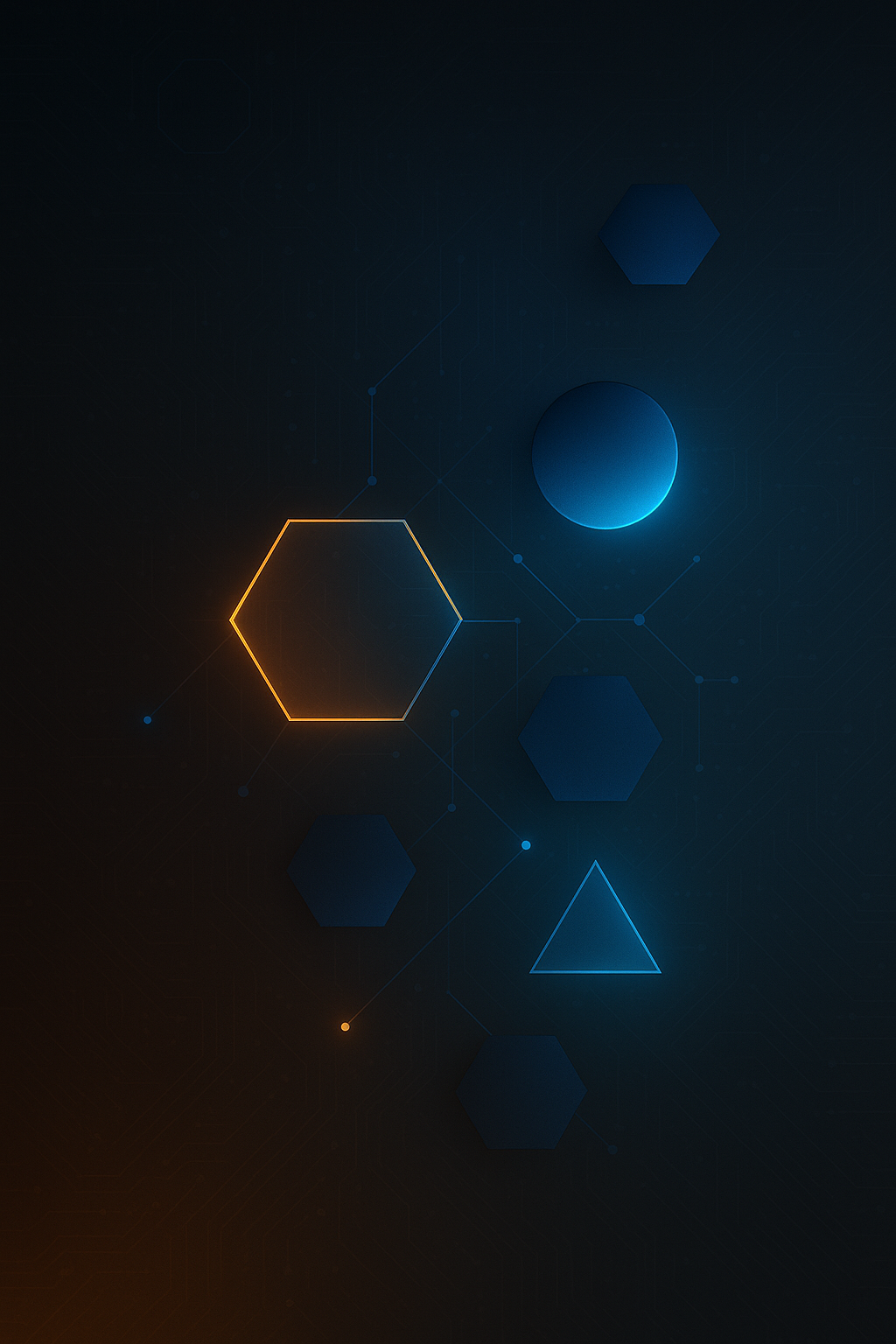
Transforming Education with Custom EdTech Apps: A Case Study
July 31, 2025
282
Table of Contents
The global education technology (EdTech) market is experiencing significant growth, with projections suggesting the industry will reach $404 billion by 2025. Among the most impactful tools in EdTech are custom educational apps, which are revolutionizing how students learn and how educators teach..
In this blog post, we will look at how custom EdTech apps are transforming education.
In 2021 alone, 76% of educators stated that technology has had a positive impact on student learning outcomes..
Education technology (EdTech) includes a wide array of digital tools designed to support the learning process, from apps and platforms to learning management systems (LMS). These technologies aim to enhance teaching and learning through interactive features, real-time assessments, and personalized learning pathways.
Do you know that the custom Ed Tech apps give you generic solutions?
While traditional EdTech apps provided generic solutions, custom educational software has become an increasingly popular choice for educators. Custom apps allow educational institutions to cater to the unique needs of their students and the specific requirements of their curriculum.
Benefits of Custom Apps
EdTech apps provide many advantages that address the shortcomings of generic software solutions. The following are some key benefits:
Learning Experience
Personalized learning is a key feature of custom apps. These apps use data-driven algorithms to provide content to each student’s needs, learning style, and pace. This leads to more effective learning outcomes. A study from The Bill & Melinda Gates Foundation revealed that students using personalized learning tools scored an average of 12 percentile points higher in reading and math.
For instance, a custom app can analyze a student’s performance and adapt content accordingly, whether through adjusting difficulty levels or providing supplemental resources on topics where the student is struggling.
Engagement and Interactivity
Custom EdTech apps often include games, quizzes, simulations, and collaborative tools that make learning more dynamic and enjoyable. Gamification has been shown to improve motivation, with 92% of students reporting that they are more engaged when learning is interactive and game-based.
For example, a custom app that uses interactive simulations in science classes allows students to perform virtual experiments, making abstract concepts more tangible. This level of engagement leads to better retention and deeper understanding of complex subjects.
Increased Accessibility
Custom EdTech apps can be designed with accessibility in mind, helping ensure that all students, regardless of their background or ability, can succeed. Features such as text-to-speech, adjustable font sizes, and language translation options can cater to students with disabilities or those who speak different languages.
A report from the National Center for Learning Disabilities states that custom EdTech solutions can help improve learning outcomes by providing accommodations for 21% of students in U.S. schools who have learning disabilities.
Administrative Tasks
Custom educational software also aids in the administration of learning institutions. From grading automation to attendance tracking, administrative features help lighten the load for teachers and school administrators.
Features such as automatic grading, real-time feedback, and progress tracking ensure that educators spend less time on paperwork and more time focusing on student outcomes.
Learn more about Why E-Learning Services Are Key to Empowering Employees and Driving Growth in 2025?
Case Study
Let us see how CodeSuite’s client achieved 15% Test Score Gains with Custom EdTech app…
Background
The School was having over 30,000 students, and faced challenges related to student disengagement and lack of personalized learning opportunities. While the district had implemented several off-the-shelf educational apps, they were often too generic, leading to minimal student engagement and stagnant academic performance, particularly in STEM (Science, Technology, Engineering, and Math) subjects.
The district recognized the need for an app that could cater to the unique learning styles and needs of their diverse student body. After considerable research and planning, the district partnered with an EdTech development company to create a custom app called EduPath.
Solution
EduPath was designed with the following key features:
- The app uses AI algorithms to adjust the difficulty of content based on student performance, ensuring that each student works at an appropriate level for their abilities.
- EduPath includes gamified elements such as leaderboards, badges, and achievements to keep students motivated and engaged in their learning.
- The app provides teachers with real-time data on student performance, enabling them to quickly identify areas where students are struggling and intervene with targeted support.
- EduPath automates tasks like grading, attendance tracking, and report generation, streamlining administrative workflows and reducing teacher workload.
Results
Within the first year of using EduPath, the district saw remarkable improvements:
- Test scores in math and science increased by an average of 15% across the board.
- Student engagement jumped significantly, with 88% of students reporting that they were more motivated to learn using the app.
- Teachers saved an average of 10 hours per week on administrative tasks, thanks to automated grading and performance tracking.
The success of EduPath demonstrated that custom EdTech apps could be an invaluable tool for enhancing learning outcomes, student engagement, and administrative efficiency.
Future of Custom EdTech Apps
As technology continues to advance, custom apps will only become more integral to the educational landscape. Emerging technologies such as artificial intelligence (AI), virtual reality (VR), and augmented reality (AR) offer exciting opportunities for the future of learning. For example, AI-driven tutors could provide personalized guidance, while VR and AR could enable immersive learning experiences.
In the coming years, we can expect custom apps to continue evolving, with even more advanced features designed to meet the unique needs of both educators and students.
Read more about Building the Future of Education: Custom Ed-Tech Apps & Software Development
Conclusion
EdTech apps have the power to transform education by providing personalized, engaging, and efficient learning experiences. By tailoring content to individual student needs and automating administrative tasks, these apps help improve student outcomes and reduce educator workload.
The case study of the school shows the significant benefits of implementing custom educational software, including increased engagement, higher academic performance, and more efficient teaching practices. As EdTech continues to evolve, custom apps will play a critical role in shaping the future of education, empowering students and educators alike.
The future of education is here and it’s digital, personalized, and built to grow with you. Schools and universities everywhere are looking for ways to modernize, and make learning more engaging. That’s where custom educational technology comes in.
With custom software, you can customize your daily operations, support every learner’s unique needs, and bring fresh innovation into the classroom.
Read more about our services here: Codesuite Custom Ed Tech Services.
If you want your organization to achieve similar results, our team can design, develop, and deploy a custom solution tailored to your exact needs.
FAQs
What are Custom EdTech apps?
These are purpose-built educational platforms designed to meet an organization’s unique requirements. Unlike off-the-shelf tools, these applications integrate precisely with existing workflows, security protocols, and data analytics needs.
How does Custom EdTech App Development differ from standard LMS installation?
Standard LMS installations follow rigid templates, whereas custom development begins with a discovery phase, identifying KPIs, workflows, and compliance requirements.
What measurable benefits do institutions see with a custom platform?
Institutions often report a 25–35% increase in learner engagement, a 30% reduction in operational support costs, and significantly improved reporting accuracy.
How long does it take to develop a custom EdTech solution?
Typical timelines depends on feature complexity. A phased approach allows stakeholders to see early wins while development continues.


